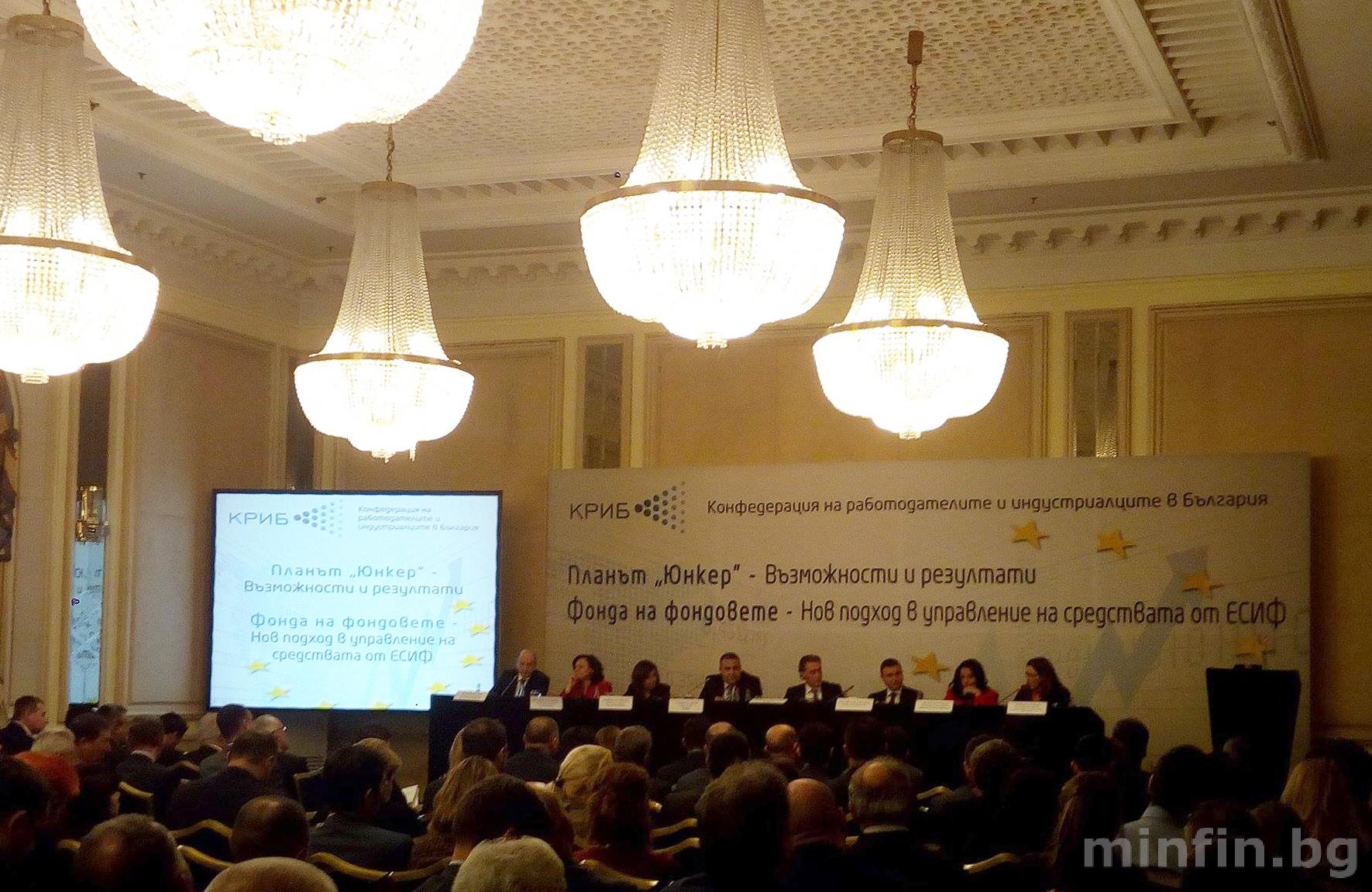VLADISLAV GORANOV: IN ORDER TO MAINTAIN THE COMPETITIVENESS OF THE ECONOMY WE NEED TO TALK MORE OF FINANCIAL INSTRUMENTS AND LESS OF GRANTS

16.01.2017
"As early as at the end of 2014, the Ministry of Finance started a debate as to how we should manage the considerable resource allocated to financial instruments under the operational programmes. My personal belief was that sooner or later we have to build a capacity in both the administration and the users of that resource". Minister of Finance (resigned) Vladislav Goranov said the above in the framework of The Juncker Plan - Opportunities and Results Forum, with subtheme The Fund of Funds - a New Approach to ESIF Resources Management, organized by the Confederation of Employers and Industrialists in Bulgaria. Minister Goranov pointed out that the key motive behind the organisation of the Forum was the fact that financial instruments were still a sort of abstraction in our country - "My opinion is that we are under an obligation to businesses for clarifying the practical manifestation of the financial instruments, in particular in the part of the Fund Manager, popularly known as the Fund of Funds". He expressed his hope that the event would bring abstraction closer to businesses as the Fund had more than BGN 1 billion which should circulate in the form of various instruments in order to reach the economic agents.
"The Fund of Funds is an extremely challenging undertaking", the Minister said. According to him, the important step since the end of 2014 had been and continued to be to build national capacity, which in the years to come could serve Bulgarian businesses not with the horizontal conventional financial instruments, designed under the common European framework and applied uniformly in Germany, Spain, Malta and Bulgaria, but with instruments which could be as close as possible to the design of the Bulgarian businesses and their needs. "This is the proper direction in order to maintain the competitiveness of the European economy and for this reason we need to talk more of financial instruments and less of grants, especially when we talk about private businesses", he said.
Vladislav Goranov reminded that the Bulgarian Government had made considerable efforts to provide Bulgarian businesses with better opportunities in getting advisory services through the European Investment Advisory Hub. In December, a Memorandum of Understanding was signed between the Republic of Bulgaria and the European Investment Bank (EIB) for the establishment of an advisory platform under the Investment Plan for Europe (the "Juncker plan"), which will provide better access of Bulgarian companies to the advisory services offered.
The Finance Minister pointed out that in terms of the first pillar of the Investment Plan for Europe there were four financial intermediaries in Bulgaria at the moment and they had concluded contracts under the EIF Window for financing of SMEs and midcaps for loans to SMEs with more favourable conditions. "In regard to the second pillar of the Investment Plan, Bulgarian entrepreneurs have shown strong interest in the European Investment Project Portal (EIPP), officially launched on 1 June 2016, and at the moment there are 7 Bulgarian projects uploaded on the website of the portal in the areas of energy, transport and industrial infrastructure, gas infrastructure, tourism", Minister Goranov said. He noted that according to the latest statistics Bulgaria was high on the EU list of submitted projects for participation and number of applications for advice from the European Investment Advisory Hub (EIAH). "The third pillar of the Investment Plan is responsibility of the governments of the EU Member States; Bulgaria was one of the first EU Member States to take individual actions at national level to remove regulatory barriers to investment", he explained and added that the Government had prepared a targeted Action Plan with measures addressing the key areas of concern that impeded the increase in investment.